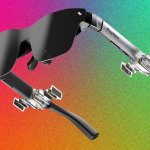Duolingo has acquired its first-ever startup, an animation studio that has created art for the language learning app and the likes for Amazon, Dropbox, Spotify and Google. The startup, Gunner, is a Detroit-based business is moving from just being a partner with Duolingo, to a full-fledged part of the growing language learning business.
Duolingo declined to reveal the terms of the deal including the purchase price; but considering the fact that the company went public last year, we’ll likely have the price of the deal during its next earnings and will update this story accordingly. Duolingo says that all of Gunner’s 15-person team will join staff as part of the acquisition. It also confirmed that the edtech company is opening up an office in Detroit, joining its other offices in Pittsburgh, Seattle, Detroit, Beijing and Berlin.
The edtech meets entertainment business has historically stayed away from acquisitions in the past, beyond its acquihire of Steve Ridout, the founder of an e-reader language learning tool (who then went on to build one of Duolingo’s most popular features to date, Stories). Last year, however, Duolingo began hiring people to help with mergers and acquisitions.
Duolingo’s chief business officer Bob Meese said that “prior to 2022, we were just taking a more reactive ‘wait and see’ approach,” Meese said. “And then this year we were a fair bit more proactive in terms of defining what would be the best fit for the company in terms of categories and and targets.”
For those who have followed Duolingo’s trajectory – like me, having spent over 12,000 words on the company’s arc – it’s not all that surprising that the education company’s first acquisition was not in the language learning space, but instead focused on technology to make learning more easy on the eyes. CEO and co-founder Luis Von Ahn has said many times that he doesn’t pay too much attention to direct competition.
Meese explains that the Gunner acquisition fits into the fact that Duolingo is a “very metrics focused company.”
“There’s some ways that we use animation that we can draw super clear value from,” he explained. The executive described Duolingo’s subscription product, which is branded as Super Duolingo. Subscriptions rose, he says, when the company included an animated promotion inside the app. “That’s something you can put a very clear economic value on.” According to Duolingo’s last earnings report, paid Subscribers totaled 3.3 million at the end of the quarter, up 71% from the prior year’s quarter.
Not every benefit of animation is so monetary. There’s a team at Duolingo whose entire job it is to make the app more delightful that would benefit from more animation resources. They don’t need to move a metric, they just need to think about how to make the app experience more enjoyable, especially as “Luis was just encouraging us to use more sparkles in the app,” Meese explained. When asked about which team Gunner will report to, Meese didn’t offer specifics but said that “we’re bringing more of our creative teams together, especially in design, marketing and other creative pursuits within the company.”
Going forward, the executive said that Duolingo does expect to do more acquisitions, and companies of interest must fall into one of the following three categories: language learning, other education verticals, or, like Gunner, tech capabilities. There’s lots of “internal discussions” over where the company is going, but no specific cadence on how many companies Duolingo wants (or can afford to scoop).
Duolingo’s current stock is trading at $101.36 down 47% from its 52-week high price of $191.82, and up 68% from its 52-week low price of $60.50.
Duolingo makes its first official acquisition, with more to come by Natasha Mascarenhas originally published on TechCrunch






